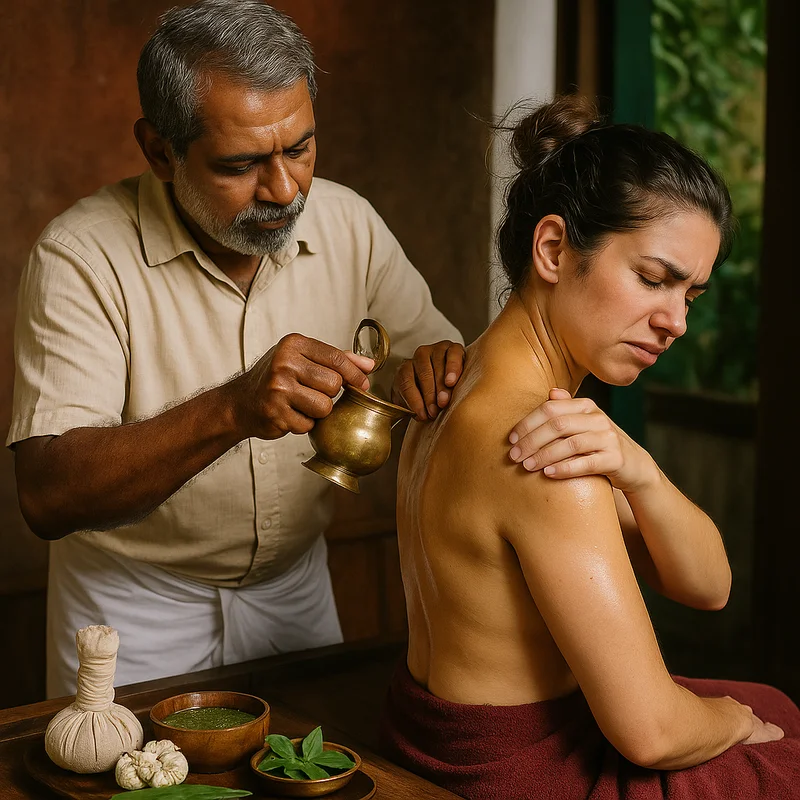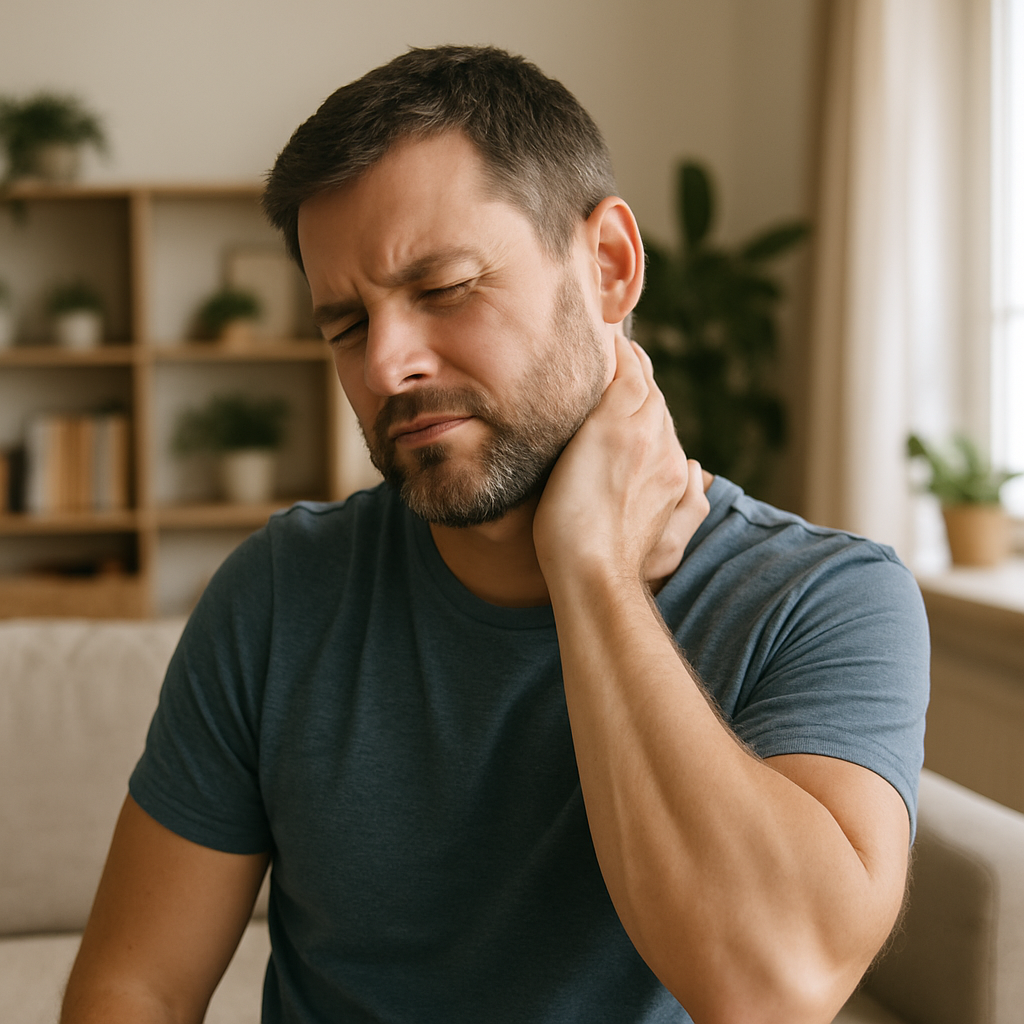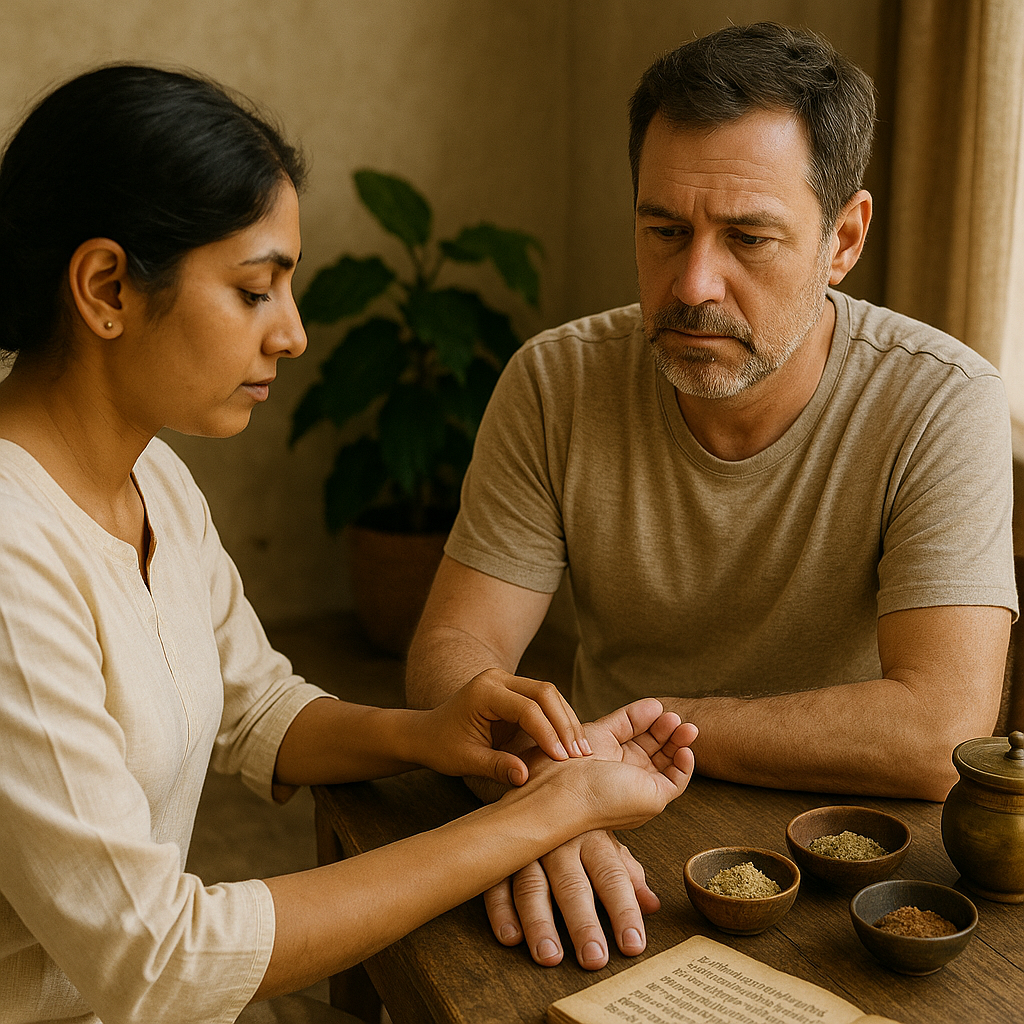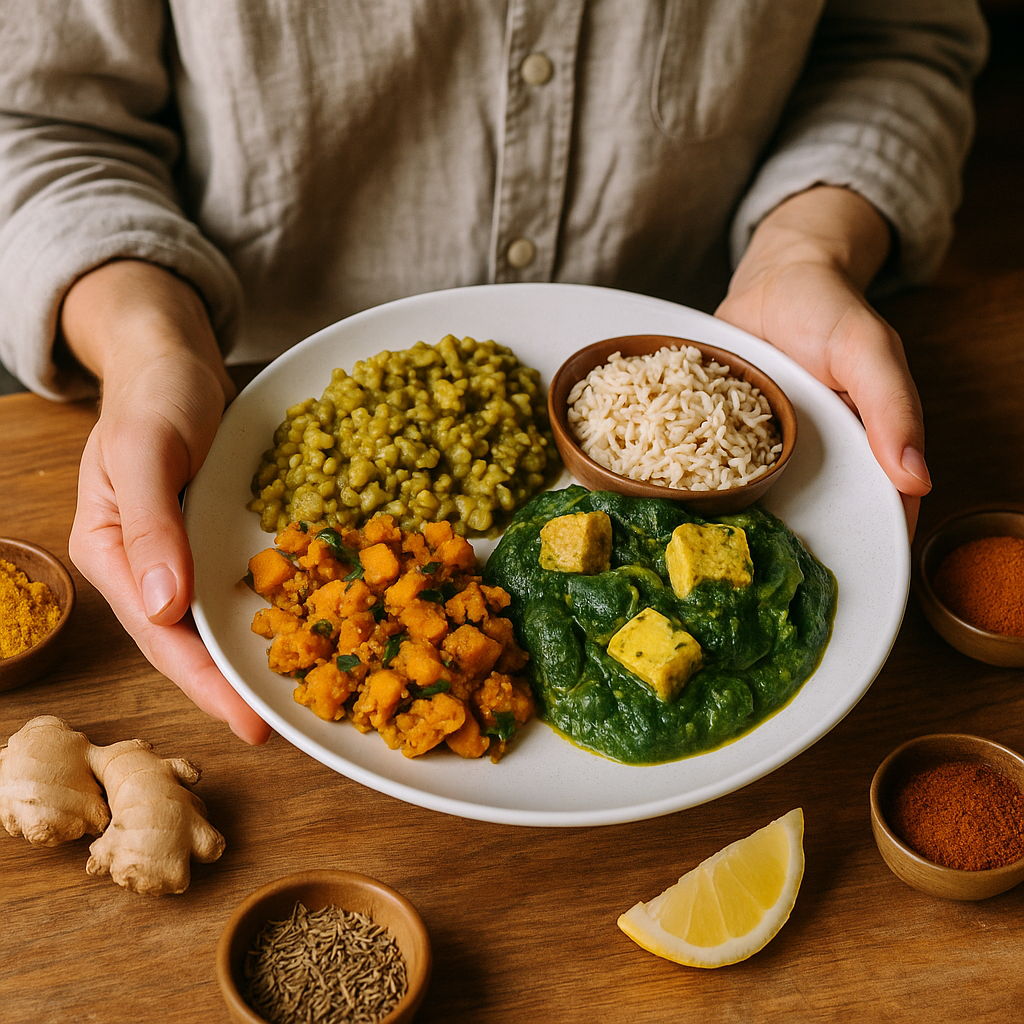Ask Ayurvedic doctor a question and get a consultation online on the problem of your concern in a free or paid mode. More than 2,000 experienced doctors work and wait for your questions on our site and help users to solve their health problems every day.
Ayurvedic Treatment for Muscle Stiffness: Real Help or Just Hype?

Introduction
So, muscle stiffness. That annoying, sometimes borderline-debilitating feeling of being locked up from the inside out. We've all felt it — maybe after a hard workout, during flu season, or just from sitting like a shrimp for eight hours at the desk. But for some people, it's not just an occasional annoyance. It's chronic, it's painful, and it seriously messes with everyday life. That’s why “Ayurvedic treatment for muscle stiffness” is more than just a trendy search term — it’s a legit cry for help.
In Ayurveda, this condition isn’t just about stiff muscles. It’s about energy flow gone rogue. Stagnant Vata, aggravated Ama (toxic buildup), and poor Agni (digestive fire) all play their part. The beauty — and the challenge — of Ayurveda is that it doesn’t just treat the symptom. It goes way deeper. We’re talking root-cause level deep.
Why should you care? Well, for one — stats don’t lie. Millions suffer from muscular disorders worldwide, and many conventional treatments barely scratch the surface. NSAIDs? They numb the pain but don’t fix the system. Physiotherapy helps, but what if your stiffness is tied to digestion or emotions? That’s where Ayurveda shines.
Studies — yes, real peer-reviewed ones — have started recognizing the potential of Ayurvedic herbs like Ashwagandha, Rasna, and therapies like Abhyanga and Basti in reducing inflammation and relaxing muscles.
In this guide, I’ll walk you through:
-
What exactly muscle stiffness is (from both modern and Ayurvedic lenses)
-
Why dosha imbalance matters (and which one’s wrecking your flow)
-
The causes, triggers, and sneaky signs you might be ignoring
-
Actual Ayurvedic remedies — herbs, therapies, diet, lifestyle
-
Real patient stories and the surprising science backing it all up
It’s practical, it’s slightly personal, and it’s got everything you need to rethink how you handle your stiff muscles — without guzzling pills.

Understanding Ayurvedic Treatment for Muscle Stiffness – The Ayurvedic Lowdown
What exactly is muscle stiffness?
From a modern scientific standpoint, muscle stiffness is when your muscles resist movement or stretch. It’s often caused by overuse, dehydration, electrolyte imbalance, or certain diseases like fibromyalgia or Parkinson’s. But that’s just scratching the surface. If you ask an orthopedic specialist, they’ll mention “hypertonia,” muscle rigidity due to neurological causes, or “myalgia” tied to inflammation. The list goes on.
But here's the kicker — stiffness isn’t always local. Sometimes, the cause is systemic. You can stretch and massage all you want, but if your body’s internal systems are clogged or inflamed, that tightness keeps coming back.
Stiffness can:
-
Limit mobility
-
Cause pain during motion
-
Interfere with sleep
-
Lead to joint and posture issues
-
Indicate deeper issues like autoimmune disorders
It often comes in waves — mornings are the worst, especially if it’s tied to arthritis. But even after rest, people feel tight, locked up, like their body's holding on to tension it doesn’t want to release.
Ayurvedic perspective: Imbalance of Doshas in muscle stiffness
Ayurveda sees muscle stiffness as a Vata disorder — specifically, an aggravated Vata dosha obstructed by Kapha or toxic Ama. Basically, your body's channels — srotas — get clogged. Energy and nutrients stop flowing freely, and what do you get? Creaky, rigid limbs and that stuck feeling in your joints and muscles.
Common Ayurvedic causes include:
-
Eating cold, dry, or heavy-to-digest foods (hello, leftover pizza and iced drinks)
-
Sitting still too long — yes, the Netflix binge is a problem
-
Emotional tension — grief and fear both aggravate Vata
-
Overexertion without adequate rest
-
Inadequate oil intake — Ayurveda loves healthy fats
Ayurveda classifies this condition as part of Mamsa Gata Vata, or sometimes as Aamavata if toxins are involved. If you’ve got stiffness with joint pain, that’s often the combo.
How Ayurveda’s view differs from conventional medicine
This part gets interesting. In modern medicine, muscle stiffness is often treated symptomatically: painkillers, muscle relaxants, or physical therapy. There’s usually little investigation into why the stiffness keeps recurring or why it's worse during certain seasons (Ayurveda would blame Rutu imbalance, btw).
Ayurveda flips the script. It treats the stiffness not just as a muscular issue but as a systemic imbalance. Rather than force movement, it encourages oiling, nourishment, detoxification, and — above all — understanding your unique Prakriti (body constitution).
Also, instead of chasing one-size-fits-all drugs, Ayurveda customizes based on:
-
Dosha type
-
Stage of disease
-
Strength of Agni
-
Accumulated Ama
-
Seasonal and mental factors
Where modern medicine isolates, Ayurveda integrates.
Don't wait or self medicate. Start chat with Doctor NOW
Causes and Triggers of Muscle Stiffness (Ayurvedic Insights)
Main underlying Ayurvedic causes
Alright, here’s where Ayurveda starts laying the groundwork for real understanding — not just “what’s stiff,” but why. At the core, muscle stiffness is often the result of a disturbed Vata dosha, especially when it's not flowing freely. But Vata rarely acts alone — it’s usually joined by sticky friends like Kapha or Ama (toxins formed from undigested food).
Here are the usual suspects in Ayurveda:
-
Dry, light, and cold foods — These aggravate Vata and reduce lubrication in the body. Think rice cakes, salads in winter, or ice-cold smoothies first thing in the morning.
-
Irregular meals or fasting too much — This throws off your Agni and builds Ama.
-
Overexertion without oiling — Doing high-intensity workouts or long runs with no warm-up, no massage? That’s a hard pass in Ayurveda.
-
Suppressed emotions — Especially fear, anxiety, or grief, which are directly linked to Vata imbalance.
-
Aging — Natural Vata dominance increases with age, making stiffness more likely unless counterbalanced.
Common triggers and risk factors
Ayurveda doesn’t just look at food and emotions — it even considers weather, time of day, and your constitution.
-
Cold or windy climates worsen Vata — especially early mornings or winters.
-
Lack of movement or too much sitting (office workers, I’m looking at you) causes stagnation in Srotas.
-
Trauma or injury without proper post-injury oiling or rest can trap Vata in the muscle tissue.
-
Sleep deprivation or erratic routines disturb body rhythms and weaken recovery capacity.
Why modern lifestyle makes it worse
It’s kind of ironic. We live in an age where health is a billion-dollar industry, yet chronic stiffness is more common than ever. Here’s why:
-
Too many raw, trendy foods (raw diets may look cool on Instagram, but Ayurveda cringes)
-
Stress, hustle culture, and constant screen time — all scream Vata aggravation
-
Dry indoor air from ACs and heaters, poor hydration, and lack of oil in diets (fat phobia = big Vata fail)
-
Inconsistent sleep — you can't cheat Ritu cycles (circadian rhythms) forever
Ayurveda saw all this coming, centuries ago. We're just catching up.
Recognizing Symptoms & Early Signs of Muscle Stiffness
Typical symptoms
Muscle stiffness doesn't always shout. Sometimes, it whispers.
-
Morning stiffness — that "why do I feel 80 years old?" moment right after waking
-
Resistance to movement — muscles don’t stretch or release easily, even after warming up
-
Tightness in the neck, lower back, calves, or shoulders — even without physical activity
-
Muscle fatigue without actual strain
-
Tension headaches — a sneaky sign of muscular tension in the neck/scalp region
In Ayurveda, if stiffness comes with pain, joint swelling, or digestive issues, you're likely dealing with Aamavata. If it’s dry and cracking, that’s classic Vata excess.
Less obvious or overlooked signs
Some red flags fly under the radar:
-
Cracking joints without pain — sign of dryness and Vata aggravation
-
Restlessness or anxiety — yes, even your mind can “stiffen”
-
Sleep disruptions from muscular discomfort
-
Increased irritability in cold weather — your body isn’t just cold, it’s contracted
When should you seek Ayurvedic help?
Here’s the honest take — don’t wait until you’re in pain daily. Ayurveda is best at preventing progression.
You should consult an Ayurvedic practitioner if:
-
Stiffness lasts more than 2–3 weeks
-
It keeps returning without clear physical cause
-
It worsens in cold or windy conditions
-
You notice accompanying digestive or emotional symptoms
But — and this is important — Ayurveda isn’t magic. If your stiffness stems from nerve compression, tumors, or advanced neurodegenerative disorders, get evaluated by a modern physician too. Ayurveda can complement, but not always replace.

Ayurvedic Diagnosis Methods for Muscle Stiffness
Pulse diagnosis, tongue analysis, and other traditional methods
Ayurvedic diagnosis is part science, part intuition, and a whole lot of subtle observation.
Pulse diagnosis (Nadi Pariksha):
The pulse reveals Vata, Pitta, Kapha states in real time. In stiffness cases, you'll often find a fast, irregular, or weak Vata pulse — sometimes obstructed by a sluggish Kapha.
Tongue analysis (Jihva Pariksha):
A dry, cracked tongue suggests Vata dominance. White coating? That’s Ama buildup. If it trembles slightly? That might hint at nervous system involvement.
Other signs:
-
Skin texture — rough, dry, or thin skin points to Vata
-
Voice and speech — hesitant, dry voice can confirm Vata
-
Observation of gait — Ayurveda even considers how you walk!
The whole body is read as a map — no blood tests needed (though they can help in mixed approaches).
Determining Dosha imbalance specific to muscle stiffness
Most commonly, muscle stiffness is a Vata-predominant condition — especially Vyana Vata, which governs circulation and movement. But things get complex when other doshas jump in.
-
Vata + Kapha: Dry stiffness with heaviness and sluggish circulation
-
Vata + Pitta: Stiffness with burning, inflammation, or redness
-
Aamavata: Stiffness + pain + joint swelling + sluggish digestion — a more toxic state
Knowing the exact Dosha pattern helps determine the treatment route — detox, nourishment, lubrication, or all three.
Ayurvedic Treatments & Remedies for Muscle Stiffness
Ayurvedic herbs and medicines
Let’s get into the juicy stuff — actual herbs.
Top Ayurvedic herbs:
-
Ashwagandha – anti-inflammatory, Vata-pacifying, muscle relaxing
-
Rasna – specific for stiffness and joint pain
-
Guggulu (Yograj or Simhanad Guggulu) – great for detoxifying Ama
-
Shallaki (Boswellia) – anti-inflammatory and rejuvenating
-
Dashamoola – supports nerves, relieves Vata
Dosage? Always consult a practitioner, but roughly:
-
Ashwagandha powder: 3–5g/day with warm milk
-
Rasna decoction: 30 ml twice daily
-
Guggulu tablets: 1–2 tablets twice a day after food
Ayurvedic therapies and Panchakarma treatments
Oh, this is the part where Ayurveda really flexes.
Best treatments for muscle stiffness:
-
Abhyanga (oil massage): Daily with warm sesame or Mahanarayan oil
-
Swedana (steam therapy): Softens stiff tissues and clears channels
-
Basti (medicated enemas): Gold standard for chronic Vata disorders
-
Patra Pinda Sweda (herbal poultice massage): Targets pain and stiffness
Panchakarma isn’t just a spa day. It’s deep cellular detox — and when supervised well, it can reverse years of stuck Vata.
Effective Ayurvedic home remedies and self-care
Not everything needs a clinic visit.
Try this:
-
Warm ginger tea with a pinch of hing to reduce Ama
-
Massage feet and spine nightly with castor or sesame oil
-
Apply a turmeric paste (with sesame oil) to stiff areas
-
Use rock salt hot compress on tight muscles
And one simple ritual: drink warm water with Ajwain seeds in the morning. It works like a gentle cleanser for stuck Vata-Kapha mix.

Diet & Lifestyle Recommendations for Managing Muscle Stiffness
Recommended foods and dietary guidelines
Here’s the thing: what you eat directly impacts how your muscles feel. Sounds dramatic, but Ayurveda doesn’t play around with diet. Muscle stiffness screams Vata imbalance — dry, cold, light, erratic — and that’s exactly what your food needs to counteract.
Focus on:
-
Warm, moist, cooked meals — always. Cold salads or smoothies are a no-no.
-
Oils & ghee — healthy fats are like lube for your joints and tissues. Ghee, sesame oil, and coconut oil (if you’re in a hot climate) are gold.
-
Spices — ginger, cumin, turmeric, ajwain, fenugreek, cinnamon. They stoke digestion (Agni), reduce Ama, and balance Vata.
-
Good carbs — yes, really. Rice, oats, quinoa, and wheat (unless you have gluten sensitivity) help ground the body.
-
Protein — mung dal, well-cooked lentils, paneer, tofu, and stewed meats (if you're non-veg) aid muscle repair.
-
Meal timing — eat by sunset, never skip breakfast, and avoid random snacking.
Ayurvedic combo example:
Khichdi + ghee + ginger pickle + ajwain water = anti-Vata super combo
Foods and drinks to avoid
This is where people trip up. The “healthy” stuff isn’t always good for stiff muscles.
Avoid:
-
Raw food — too cooling and hard to digest
-
Cold drinks — they kill Agni and lock in Ama
-
Dry or dehydrating foods — popcorn, crackers, stale bread
-
Fermented or processed items — cheese, pickles (unless prepared traditionally), canned food
-
Too much caffeine — Vata goes wild on coffee
Also, be careful with combining milk with salty or sour foods — it leads to Ama, and that means more stiffness.
Daily routine and lifestyle tips
Ayurveda is a lifestyle. And routine is everything.
Ideal daily rhythm for stiffness-prone folks:
-
Wake up by 6:30 AM — before Kapha slows you down
-
Oil massage (Abhyanga) every morning — even 5 mins helps
-
Mild yoga or stretches — sun salutations, gentle twists
-
Warm water sip throughout the day
-
Eat main meal at noon, light dinner before 7 PM
-
Avoid heavy exercise late evening
-
Sleep by 10 PM — this is huge for Vata regulation
Why it matters? Because Vata governs movement and nervous control — keeping it grounded is the secret to staying mobile and pain-free.
Ayurvedic herbs and medicines effective for muscle stiffness
(Yes, again — but here with specifics.)
-
Ashwagandha: Adaptogen, reduces inflammation, improves sleep
-
Rasna: Clears Ama from muscle tissue
-
Guggulu: Detox, especially in joint-related stiffness
-
Shatavari: For dry tissue states, especially in menopausal women
-
Mahanarayan Oil: Topical application for stiffness, pain, and recovery
Forms: powder (churna), decoction (kwatha), tablets, oils
Warnings:
-
Avoid Guggulu during pregnancy or with gastritis
-
Ashwagandha is best avoided in hyperthyroidism
-
Always check with a practitioner if breastfeeding or on medication
Real Patient Experiences & Success Stories
Case 1 – Neha, 39, software engineer
"I was waking up every day feeling like my spine was glued shut. Tried yoga, heating pads — nothing worked long-term. My Ayurvedic doctor suggested 3 weeks of Abhyanga, daily Ajwain water, and Rasna decoction. After a week, the cracking reduced. In three weeks, I was back to dancing Zumba — no exaggeration."
Case 2 – Dev, 62, retired teacher
"Post-COVID, I had persistent muscle stiffness in my legs and neck. MRI showed nothing. Ayurveda pegged it as Aamavata. After Panchakarma (specifically Basti and Patra Sweda), plus Yograj Guggulu and dietary changes — I felt like myself again after months of misery."
Timeline? Most people see relief in 2–4 weeks with consistent Ayurvedic care — especially when detox and oil therapies are involved.
Scientific Evidence & Research on Ayurvedic Effectiveness for Muscle Stiffness
Quick summary of relevant scientific findings
Ayurveda isn’t just old — it’s being validated in modern labs too. Let’s look at a few findings:
-
Ashwagandha: A 2015 study published in the Journal of Ayurveda and Integrative Medicine showed significant improvement in muscle strength and stiffness reduction in subjects using Ashwagandha root extract.
-
Guggulu: Trials have confirmed its anti-inflammatory and analgesic properties, especially in musculoskeletal disorders.
-
Abhyanga and Swedana: Clinical evaluations showed marked relief in patients with rheumatoid arthritis and fibromyalgia — two major causes of chronic stiffness.
Common Misconceptions About Muscle Stiffness and Ayurveda
“Ayurveda is too slow.”
Actually? It’s just thorough. You may not feel instant numbing like a painkiller, but that’s because Ayurveda is repairing your system, not silencing it.
“Only old people get stiffness.”
Not anymore. The way we work, eat, and stress — Vata issues are hitting people in their 20s.
“Ayurveda can’t help serious cases.”
True sometimes. But often, it can reduce dependency on pain meds, slow disease progression, and improve quality of life — especially when started early.
“It’s all herbs and potions.”
Nope — it's a full system: food, sleep, mindset, movement, detox, and yes, the right herbs.
Conclusion
Muscle stiffness isn’t just uncomfortable — it’s your body’s way of waving a big red flag. In Ayurveda, that flag usually spells Vata. Left unchecked, this dry, erratic force can rob you of flexibility, energy, even sleep. But here’s the thing: you don’t need to live like a wooden puppet forever.
Through customized herbal remedies, therapies like Abhyanga and Basti, diet that actually nourishes your tissues, and simple lifestyle tweaks, Ayurvedic treatment for muscle stiffness can feel like coming home to your body again.
Is it perfect? No. But is it holistic, sustainable, and deeply human? Absolutely.
If you’re reading this and thinking, “Yeah, that sounds like me,” then maybe it’s time to stop just stretching or popping Advil and start asking deeper questions.
👉 Looking for personalized guidance? Book a consult at Ask-Ayurveda.com — it might just change how you move through life.
Frequently Asked Questions (FAQ)
1. How long does it take for Ayurvedic treatment to work for muscle stiffness?
It depends. Mild cases may improve within a week or two. Chronic or toxin-heavy conditions (like Aamavata) can take a few months of consistent treatment and detox.
2. Can I use Ayurvedic oils even if I don’t follow the full diet?
Yes, oil therapies like Abhyanga still help. But pairing it with diet accelerates healing and reduces recurrence.
3. Are there any side effects to Ayurvedic herbs for stiffness?
Generally no, if prescribed correctly. But herbs like Guggulu can irritate the gut if taken in excess, and Ashwagandha may be unsuitable for hyperthyroid individuals.
4. Can muscle stiffness be fully cured with Ayurveda?
If it’s functional (not due to irreversible structural damage), then yes — especially if treated early. Even in chronic cases, symptoms can often be significantly reduced.
5. Is Panchakarma necessary for stiffness?
Not always, but for deep-seated or recurring stiffness, Basti and Swedana can provide profound relief. It’s like clearing the pipes before trying to pour in fresh oil.

